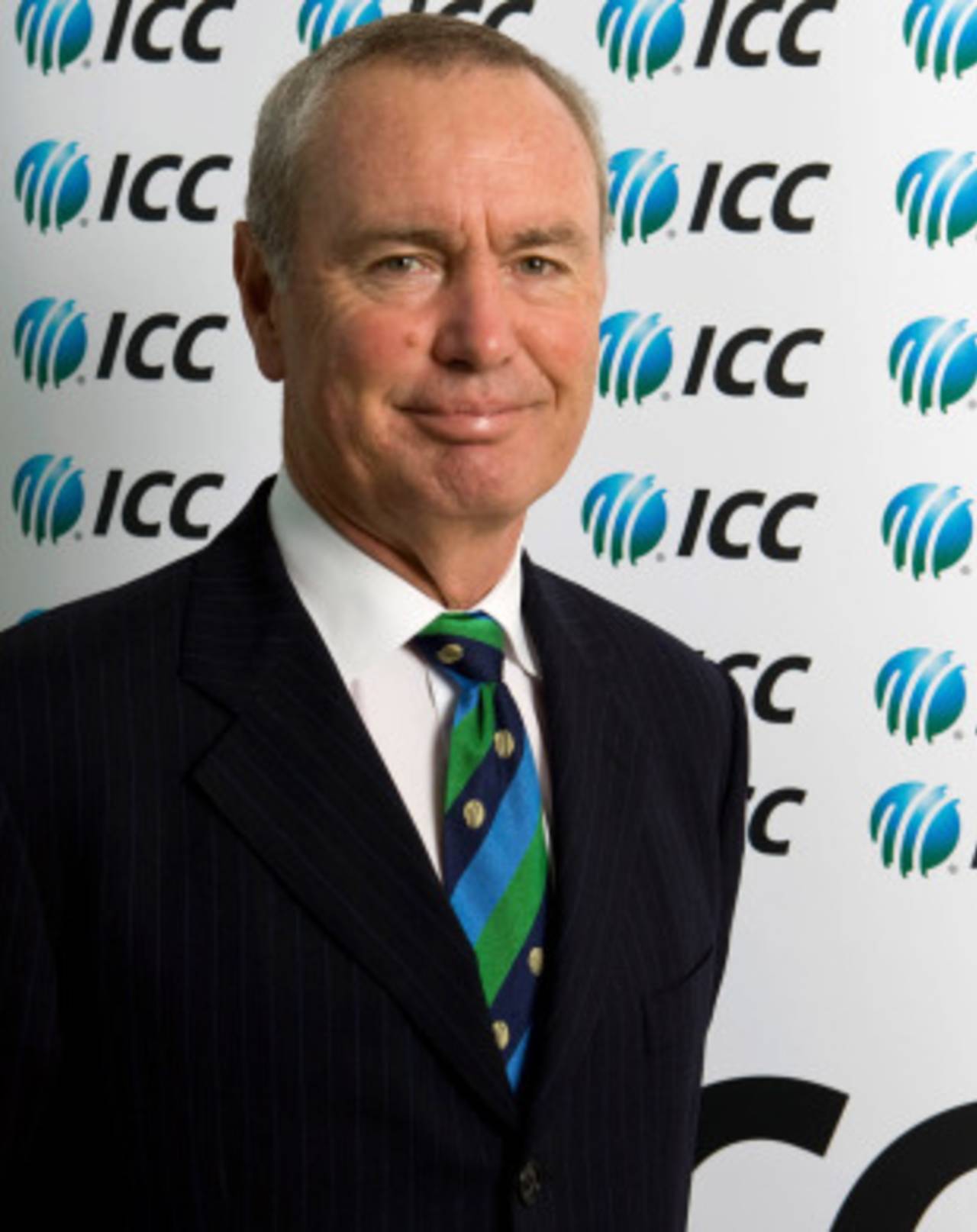On a grim, grey day of constant drizzle and lowered temperatures, a fire alarm went off at the ICC's annual conference venue, the W Hotel. Staff rushed around to check on the ringing bells and flashing red lights outside the conference room where the ICC's Executive Board were meeting.
They need not have bothered. It was just an apt illustration of the final incendiary issue that awaits the Executive Board on their last day of deliberations on Wednesday: the ICC's plan to change, for the fourth time in 15 years, the manner in which they elect their president. Discussion on
the rotation issue - pushed back to the penultimate day of an eventful annual conference - follows a written "circular resolution" by the Executive Board on May 31 seeking an amendment in the ICC constitution over the appointment procedure of its president.
To succeed, the move needs the support of 38 of the 50 Members and eight out of the ten Full Members at the vote by the full council on Thursday. There is a possibility that enough of an objection could be raised to prevent its eventual amendment there, if not at the Executive Board stage itself. The potential problems stem from India's subcontinent neighbours. The PCB has voted against the idea from its inception; CEO Subhan Ahmad said Pakistan was taking a "principled" stance on the issue, "irrespective of whether we win or lose."
Sri Lanka abstained from the circular resolution and, late on Tuesday night, said it would stick to that. However, the fluidity of the situation can be summed up by Sri Lanka's thinking. On Tuesday afternoon SLC chairman Somachandra De Silva hedged his bets on his board's stand. "All us directors are working together as a team," he told ESPNcricinfo. "Ideally, I think everybody should be given a chance [at the presidency]." Asked if Sri Lanka would support Pakistan when it came to a new vote on the issue, DeSilva said, "If they ask me, I will take a decision at that time."
Later in the day, though, he said he would abstain so as not to offend either Pakistan or India.
SLC's leaning towards a rotation policy has come two days after Bangladesh - who initially supported the move to change - released a statement explaining their stance, adding that they had made their views clear to ICC president Sharad Pawar in a letter on June 12. According to the rotation policy, it is Pakistan or Bangladesh's turn next once Alan Isaac of New Zealand ends his term as ICC chief in 2014. With Ehsan Mani of Pakistan having served as ICC president, Bangladesh could put up a candidate at the time, if the constitution is not amended.
On the opening day of the conference, the BCB stated that while it supported the amendment in principle, it believes that it was only fair that "all existing full member countries avail the privileges of the current rotation system" before a new system was put into place. It is also understood that in informal discussions, a fourth full member nation has also shown an interest in the opposition to an instant amendment of the ICC constitution.
The ICC's annual conference is peppered with meetings that lead to the surprises at the more public gatherings. Sri Lankan officials, for example, met with the BCCI this morning to see if the stalemate could be broken over the participation of Indian players in the SLPL. It was, DeSilva said, "a negative meeting. The BCCI said they couldn't allow their players to play the SLPL."
It's now down to the semantics, numbers, carrots and sticks. One opinion is that the BCB is tied to its original position of May 31, favouring the amendment. However, PCB lawywer Taffazul Rizvi told ESPNcricinfo, "A resolution by circulation has to be legally confirmed. A decision on such an important subject should've only been taken after due deliberation."
Pakistan's controversial chairman Ijaz Butt has been created as the bogeyman who will ascent to high office under the rotation, but as one of the officials present at the conference today said, "It's not difficult to create a monster under the bed and forget about the principle behind rotation. That the ICC is an international body after all. Rules can't be changed to suit individual interests every few years."
The turnaround by the Executive Board over the
participation of Associates in the 2015 World Cup has certainly given those in favour of the amendment the confidence that they need not fear any opposition amongst the multitude of less powerful nations. Cricket Ireland chief executive Warren Deutrom has already said he is in favour of scrapping the rotation system. "The principle is quite simply that it's the best person for the job," he told
AFP. "And the best person for the job might already reside within Pakistan or Bangladesh, but the idea is that as long as the best person for the job is found, we should support that."
Those Full Members against the amendment want the smaller yet more important numbers on their side going into Wednesday's meeting.
Sharda Ugra is senior editor at ESPNcricinfo
